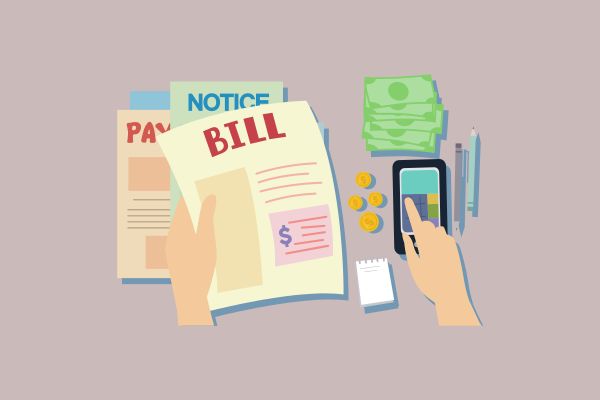Invoice generated from the cash register: is a digital signature mandatory? How to preserve and store invoices?
Are invoices generated from cash registers required to have digital signatures?
According to Article 11 of Decree 123/2020/ND-CP, the regulations on invoices generated from cash registers connected to electronic data transfer with tax authorities must ensure the following principles:
- Identifiable invoices from cash registers connected to electronic data transfer with tax authorities;- Not required to have digital signatures;- Expenses for purchasing goods and services using invoices (or photocopies of invoices or extracting information from the electronic portal of the General Department of Taxation about the invoice) generated from the cash register are considered valid and sufficient invoices, legal evidence when determining tax obligations.
Thus, invoices generated from cash registers connected to electronic data transfer with tax authorities are not required to have digital signatures.

Are invoices generated from cash registers required to have digital signatures? How to preserve and store invoices?
What are the principles for creating, managing, and using invoices and vouchers?
Based on Article 4 of Decree 123/2020/ND-CP, the principles for creating, managing, and using invoices and vouchers are as follows:
- When selling goods or providing services, the seller must issue an invoice to deliver to the buyer (including cases where goods or services are used for promotion, advertising, sample goods; goods or services are given, donated, exchanged, as wages for workers, and internal consumption (except for internal circulation to continue the production process); exporting goods under forms of lending, borrowing, or returning goods) and must fully record the content as prescribed in Article 10 of this Decree. In the case of electronic invoices, it must follow the standard data format of the tax authority as stipulated in Article 12 of Decree 123/2020/ND-CP.
- When deducting personal income tax, collecting taxes, fees, and charges, the organizations responsible for tax deduction, fee, and charge collection must issue tax deduction receipts, tax, fee, and charge receipts to the taxpayer, and must fully record the content as prescribed in Article 32 of this Decree. In case electronic receipts are used, it must follow the standard data format of the tax authority. If an individual authorizes tax finalization, no personal income tax deduction receipt is issued.
For individuals who do not enter into labor contracts or enter into labor contracts of less than 3 months, organizations and individuals paying incomes can choose to issue tax deduction receipts for each deduction or for multiple deductions within a tax period. For individuals with labor contracts from 3 months or more, the income-paying organizations and individuals only issue one tax deduction receipt per tax period.
- Before using invoices and receipts, businesses, economic organizations, other organizations, households, individual businesses, tax collection organizations must register for use with the tax authority or notify the issuance following the provisions of Articles 15, 34, and Clause 1 of Article 36 of Decree 123/2020/ND-CP.
For invoices and receipts printed by tax authorities, tax authorities must notify the issuance according to Clause 3 of Article 24 and Clause 2 of Article 36 of Decree 123/2020/ND-CP.
- Organizations, households, individual businesses during use must report the use of invoices bought from tax authorities, and report the use of printed receipts, self-printed receipts, or receipts bought from tax authorities as prescribed in Articles 29, 38 of Decree 123/2020/ND-CP.
- The registration, management, and use of electronic invoices and vouchers must comply with the provisions of laws on electronic transactions, accounting, taxation, tax management, and provisions of this Decree.
- Data of invoices, vouchers when selling goods and providing services, data of vouchers in tax transactions, tax deductions, and payment of taxes, fees, charges, are the basis for tax management and providing invoice and voucher information to relevant organizations and individuals.
- Sellers of goods, providers of services, including businesses, economic organizations, and other organizations, can authorize third parties to prepare electronic invoices for sales activities.
Invoices authorized to third parties must still show the selling entity's name as the authorizer. The authorization must be determined by a document between the authorizer and the authorized party, which includes full information about the authorized invoices (authorization purpose; authorization period; payment method of authorized invoices) and must notify the tax authority when registering for electronic invoices.
If the authorized invoice is an electronic invoice without a tax authority's code, the authorizer must transfer the electronic invoice data to the tax authority through a service provider. The Ministry of Finance provides specific guidance on this content.
- Fee and charge collection organizations can authorize third parties to prepare fee and charge receipts. Authorized receipts must still show the name of the fee and charge collecting organization as the authorizer. The authorization must be determined by a document between the authorizer and the authorized party, which includes full information about the authorized receipts (authorization purpose; authorization period; payment method of authorized receipts) and must notify the tax authority when notifying the issuance of receipts.
What are the regulations on preserving and storing invoices and vouchers?
According to Clause 1 of Article 6 of Decree 123/2020/ND-CP, the preservation and storage of invoices and vouchers must ensure compliance with the following regulations:
- Safety, security, integrity, completeness, and no alteration, distortion throughout the storage period;- Storage for the correct and sufficient period as prescribed by the accounting law.
LawNet